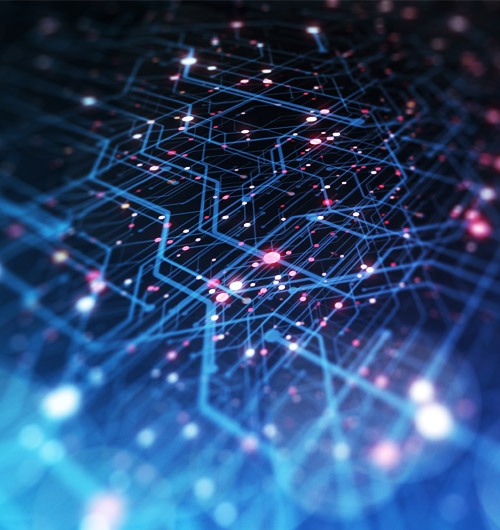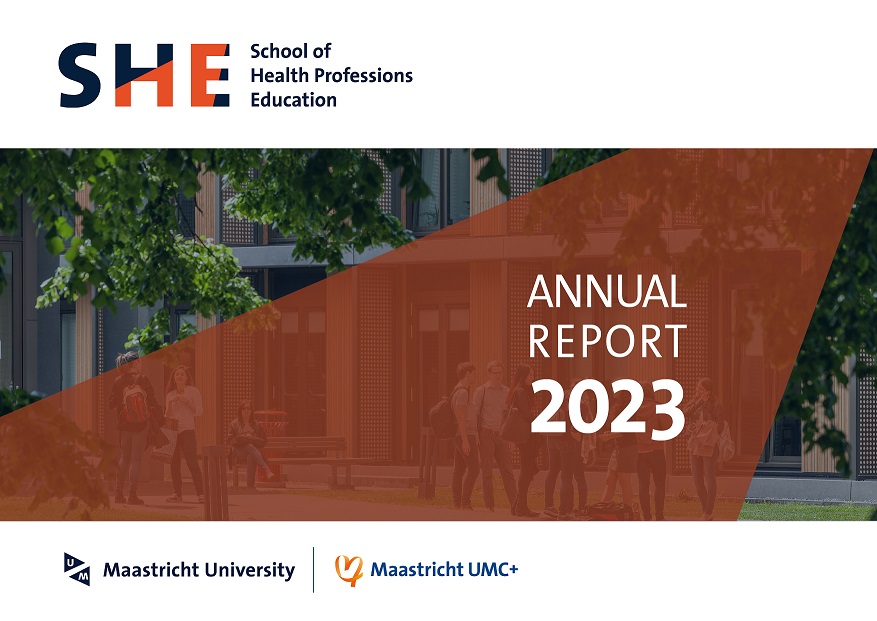"You don't have to be available 24 hours a day"
Around the Christmas recess, UM employees were called upon to take a few extra days of leave and to think twice before sending emails and WhatsApp messages to each other. The goal: to be able to relax more. How did it go? Is it something to do more often? Three professors, a secretary, the HRM Director, a 'happiness psychologist’ and the Vice-President of the Executive Board share their experiences. "I was very happy with the relative ‘silence’ during the Christmas recess. The fact that I didn't see my inbox overflowing with a multitude of emails allowed me to really enjoy the break from work and recharge my energy.”
Bartel Van de Walle, Professor of Policy Analysis for Global Challenges and Director of UNU-MERIT:
"I remember when I was a PhD student my professor lamented how his mailbox was full after the summer holidays. He had 60 emails! Now, sometimes I receive that many in one day. I think it's absolutely important to disconnect from your work from time to time. In France, there was already a law proposed in 2017 on the 'right not to be connected'. Employers are supposed to decide with their employees what that means. Some even go so far as to turn off mail servers at the end of the working day, but I don’t believe in the uniformly positive effect of such a measure. For example, people for whom hard work is part of their identity end up experiencing more stress. And in companies where everyone works at the same hours, you might be able to do something like that, but you see that in this pandemic working hours are becoming more flexible. Not necessarily by choice, for example with young children at home. I think it's more important to let employees know they don't have to be available 24 hours a day. And good examples are often followed, I don't send emails to my colleagues after six o'clock in the evening or on weekends."
(Text continues below image)

Nieke Guillory, Interim Director HRM:
"I was very happy with the relative ‘silence’ during the Christmas recess. The fact that I didn't see my inbox overflowing with a multitude of emails allowed me to really enjoy the break from work and recharge my energy. I’ve read that many organisations are introducing email and phone-free moments, for example on weekends or certain collective holiday periods. Especially during this unusual period, when it has become even more difficult to balance work and private life with the many hours working from home and, for some, the intensive combination of work and family, make periods of 'radio silence' important. This 'silence' helped me to really stop working for a moment; during other holidays I’ve tended to sneak behind my laptop anyway. I would welcome it if UM would introduce these email and phone-free periods more often – I think it could be of added value in our efforts to reduce the perceived workload."
Annemie Schols, Professor of Nutrition and Metabolism in Chronic Diseases and Dean of the Faculty of Health, Medicine and Life Sciences:
"It is important to consciously not be involved with your work, to keep work and private life in balance. I always address this in mentoring conversations with employees and I always notice it is appreciated that I’ve mentioned it. That's different than imposing a mail ban. For scientists, autonomy is very important and in the period around Christmas there are also deadlines for grant applications or just ongoing research.
I wonder if the high workload people experience is caused by the number of emails people receive, or by their tone. Sometimes emails suggest a pressure that is actually not there at all. Whereas, if you open your mail once a day in the evening, you'll notice that many of the morning's emails have already sorted themselves out. I think we should talk about that rather than the quantity. Everyone should realise how they themselves deal with this kind of pressure. And some things don't have to be done by email at all, we should give that some thought as well. That seems to me more meaningful than trying to declare an email-free period more often. It doesn’t fit with the autonomy of scientists and I think would also raise scepticism."
Alexandra Fixe, Secretary of the Marketing & Communications Department:
"For me, the extended Christmas recess meant 100% more rest than usual during this period. Moreover, the extra days off and the shutdown of mail and telephone traffic came at just the right time for my colleague and me. We both needed a longer break after this particularly hectic and busy year, but had to decide who could take the week of Christmas off. Thanks to the extension, we were both able to enjoy two weeks off at the same time. We really needed it to recharge. Starting again on the first day back at work without an overflowing inbox was also much nicer than usual. I would really like it if such an extended recess were repeated, and I would absolutely welcome regular email-free periods. The period of real rest has done me a lot of good!"
Judith Sluimer, Professor of Cardiovascular Pathophysiology:
"I thought the call to send fewer emails was a nice gesture, given the stressful time many people have had lately. ‘It's OK to slow down,’ that's a compassionate message. For me personally, there was little difference in the amount of emails compared with previous years, because the end of the year is always quieter here, just like the summer holidays. The great thing about a job as a scientist, I think, is that you can plan your own work. So, if I want to stop at three o’clock to see my kids for a few hours, I can. Then I work in the evening for a few more hours and, yes, I'll send emails then, too. But I have made it clear to my colleagues that I don’t expect any answer. It's like sending an email to someone when they’re on holiday; I put something in the subject line like 'for after your holiday', because then at least I won't forget it. I see that nowadays the threshold to send an email or to cc someone is low, perhaps we should talk about that instead, although not every cc is annoying either."
Josje Smeets, 'Happiness Psychologist', UM guest lecturer, coach for UM employees, author of 'Happy in 100 days':
"Happiness is closely linked to a sense of calm and satisfaction. Unfortunately, we experience these less and less in today’s hectic and demanding society. At the end of 2019, for example, the Occupational Health and Safety Union reported that the number of cases of burnout had doubled in the Netherlands in the last 20 years. Without a doubt, the high number of burnouts has to do with the rise of technology and the smartphone. The online and offline worlds are increasingly mixed up, as not only in our private lives do we live in both, but also through work. As a result, we are constantly 'on' and become more easily overstimulated. We charge our internal battery less often.
We can only solve this problem if from time to time we really take a break. There are many ways to do this. For example, for one hour every day before bedtime try to eliminate all audiovisual stimuli and take a walk instead, have a good conversation or read a good book. It is also strongly recommended to avoid all work-related phone use at least one day a week."

Nick Bos, Vice-President of the Executive Board:
"The request for employees to limit email traffic as much as possible during the extended Christmas break did not fall on deaf ears. Not only were fewer emails sent, there have been a lot of positive reactions. It is clear that part of the UM community (we can only guess how many people) responded enthusiastically. That gives food for thought. In any case, it is a reason to consider a broader policy on email. It's possible we could arrange something like this for the weekends. If that helps people to ‘turn off’ from work, which is not always easy in these times of working from home, it's definitely worth considering."
Also read
-
DATASET researchers from Maastricht University (BISCI) and Fontys applied the Digital Readiness Scan developed by Logistiek Digitaal to several regional logistics service providers, scientifically validated the underlying methodology, and analyzed the strengths and weaknesses of this tool.
-
Download our Annual Report from 2023.
-
On 12 June 2024, Dr Domenico Carolei, Lecturer in Public International Law and Public Law at the University of Stirling, gave a talk entitled 'Charting NGO Accountability: Identifying alternative accountability routes'.


